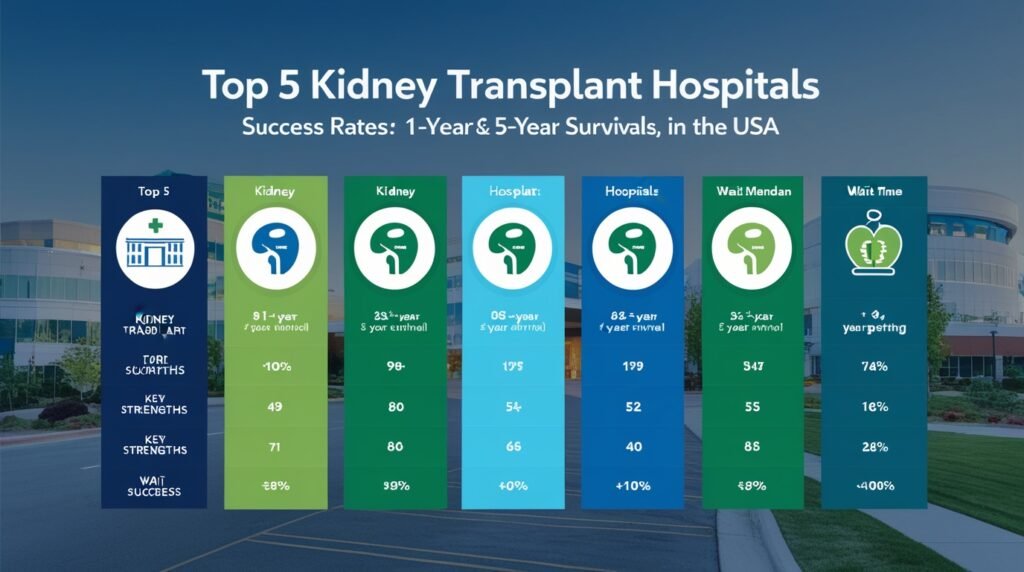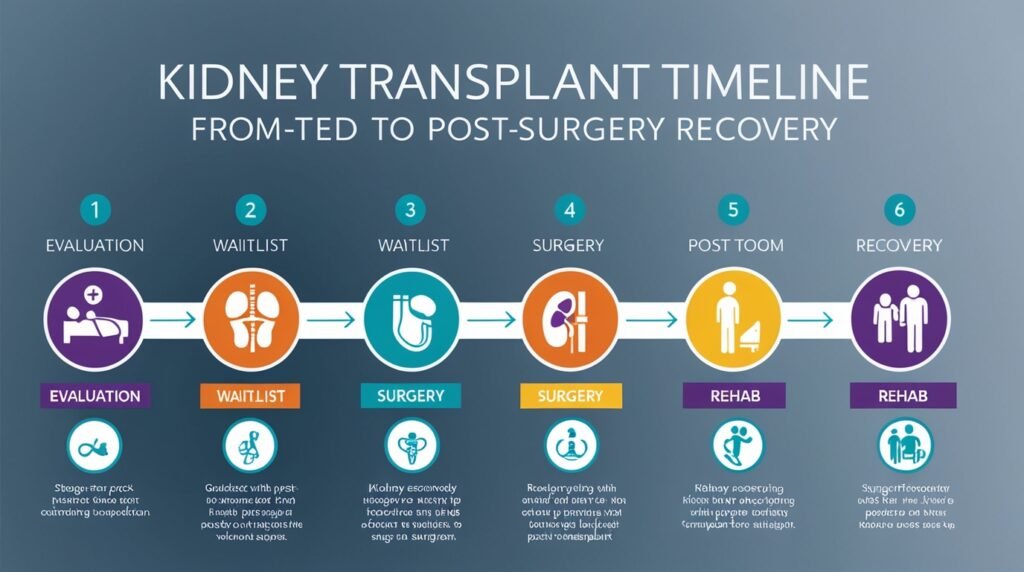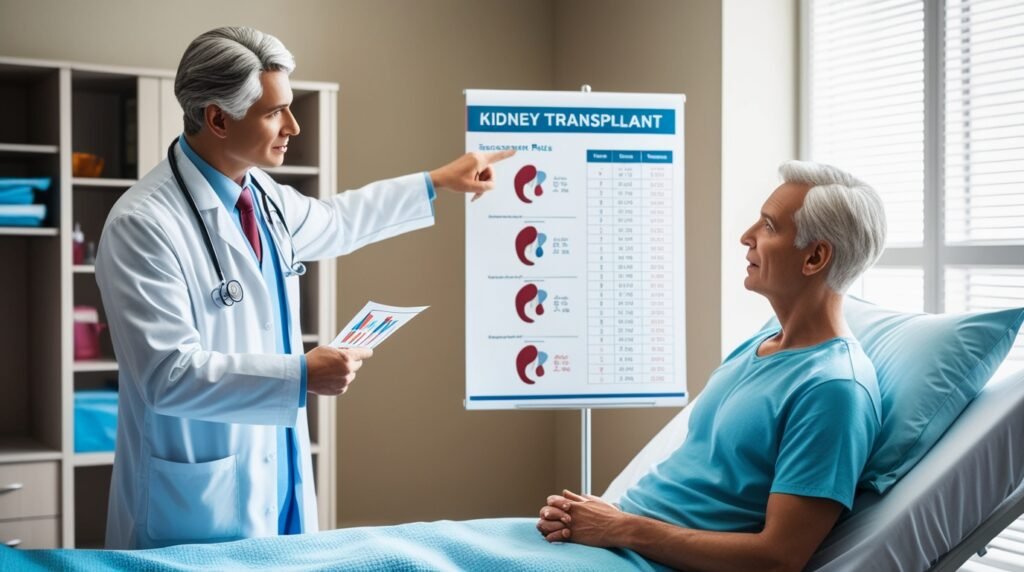Introduction
Kidney transplantation is a life-saving procedure for patients suffering from end-stage renal disease (ESRD). Choosing the right hospital can significantly impact the success of the transplant and long-term outcomes. The United States is home to some of the world’s leading transplant centers, known for their high success rates, cutting-edge technology, and expert surgical teams.
In this article, we’ll compare to the top 5 best kidney transplant hospitals in the USA, analyzing their success rates, patient care standards, and unique advantages. Whether you’re a patient or a caregiver, this guide will help you make an informed decision.
Key Factors to Consider When Choosing a Kidney Transplant Hospital
Before diving into the rankings, it’s important to understand what makes a kidney transplant center exceptional. Here are the key factors to evaluate:
1. Success Rates
-
Patient Survival Rate: Percentage of patients who survive post-transplant (1-year and 5-year rates).
-
Graft Survival Rate: Percentage of transplanted kidneys that remain functional over time.
2. Volume of Transplants Performed
Hospitals with higher transplant volumes often have more experienced teams and better outcomes.
3. Waitlist Times
Some centers have shorter wait times due to better organ allocation systems.
4. Multidisciplinary Care
The best hospitals offer comprehensive care, including nephrology, immunology, and post-transplant support.
5. Insurance & Financial Considerations
Transplant costs vary, so it’s important to check insurance coverage and financial assistance programs.
Now, let’s explore the top 5 kidney transplant hospitals in the USA.

1. Mayo Clinic (Rochester, MN)
Why It’s a Top Choice:
The Mayo Clinic is renowned for its high success rates and innovative transplant techniques. It is one of the most experienced centers in the country, performing hundreds of kidney transplants annually.
Success Rates (2023 Data):
| Metric | Rate (%) |
|---|---|
| 1-Year Patient Survival | 98% |
| 5-Year Patient Survival | 90% |
| 1-Year Graft Survival | 95% |
Key Advantages:
-
Short wait times due to efficient organ matching.
-
Living donor program with excellent outcomes.
-
Comprehensive post-transplant care including immunosuppressive therapy management.
2. Cleveland Clinic (Cleveland, OH)
Why It’s a Top Choice:
The Cleveland Clinic is a pioneer in minimally invasive transplant surgeries, reducing recovery times and complications.
Success Rates (2023 Data):
| Metric | Rate (%) |
|---|---|
| 1-Year Patient Survival | 97% |
| 5-Year Patient Survival | 88% |
| 1-Year Graft Survival | 94% |
Key Advantages:
-
Robotic-assisted kidney transplants for precision.
-
Strong living donor network.
-
Personalized treatment plans for high-risk patients.

3. Johns Hopkins Hospital (Baltimore, MD)
Why It’s a Top Choice:
Johns Hopkins is a leader in transplant research, constantly improving techniques to enhance patient outcomes.
Success Rates (2023 Data):
| Metric | Rate (%) |
|---|---|
| 1-Year Patient Survival | 96% |
| 5-Year Patient Survival | 87% |
| 1-Year Graft Survival | 93% |
Key Advantages:
-
Advanced desensitization protocols for incompatible donors.
-
Pediatric kidney transplant program (one of the best for children).
-
Strong focus on long-term patient health.
4. Massachusetts General Hospital (Boston, MA)
Why It’s a Top Choice:
Mass General excels in complex kidney transplants, including patients with multiple health complications.
Success Rates (2023 Data):
| Metric | Rate (%) |
|---|---|
| 1-Year Patient Survival | 96% |
| 5-Year Patient Survival | 86% |
| 1-Year Graft Survival | 92% |
Key Advantages:
-
Specialized care for high-risk patients (diabetics, elderly).
-
Cutting-edge immunosuppression research.
-
Strong collaboration with Harvard Medical School.
5. UCSF Medical Center (San Francisco, CA)
Why It’s a Top Choice:
UCSF is known for high-volume transplants and exceptional living donor programs.
Success Rates (2023 Data):
| Metric | Rate (%) |
|---|---|
| 1-Year Patient Survival | 95% |
| 5-Year Patient Survival | 85% |
| 1-Year Graft Survival | 91% |
Key Advantages:
-
Short wait times due to regional organ availability.
-
Innovative paired kidney exchange programs.
-
Strong support for minority and underserved populations.
Comparison Table: Top 5 Kidney Transplant Hospitals
| Hospital | 1-Year Survival | 5-Year Survival | Graft Survival | Key Strength |
|---|---|---|---|---|
| Mayo Clinic | 98% | 90% | 95% | Short wait times |
| Cleveland Clinic | 97% | 88% | 94% | Robotic surgery |
| Johns Hopkins | 96% | 87% | 93% | Pediatric care |
| Mass General | 96% | 86% | 92% | High-risk cases |
| UCSF Medical | 95% | 85% | 91% | Paired exchanges |

How to Choose the Best Hospital for You
While success rates are crucial, other factors matter too:
✔ Location – Can you travel, or do you need a local center?
✔ Insurance Coverage – Does the hospital accept your plan?
✔ Special Needs – Do you require pediatric or high-risk care?
✔ Support Services – Look for strong post-transplant programs.
Final Thoughts
Choosing the right kidney transplant hospital can be life-changing. The Mayo Clinic, Cleveland Clinic, Johns Hopkins, Mass General, and UCSF are among the best in the USA, each with unique strengths.
Before making a decision, consult with transplant specialists, evaluate financial options, and consider logistical factors. A successful transplant depends not just on the surgery but also on long-term care and follow-up.
Frequently Asked Questions (FAQs)
Q: Which hospital has the shortest wait time for a kidney transplant?
A: Mayo Clinic and UCSF Medical Center often have shorter wait times due to efficient organ allocation.
Q: Are robotic kidney transplants better?
A: Robotic-assisted surgeries (like at Cleveland Clinic) can reduce recovery time and complications.
Q: How much does a kidney transplant cost in the USA?
A: Costs range from $300,000 to $500,000, but insurance and financial aid can help.
Note By a selecting one of these top-tier hospitals, you maximize your chances of a successful kidney transplant and a healthier future. Always consult with medical professionals to determine the best option for your specific needs.

Leave a Reply